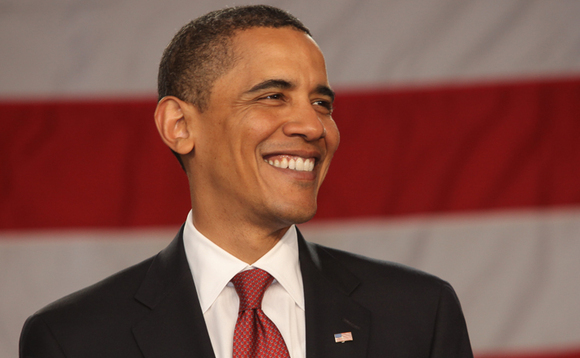
From US to Europe: an elusive carried interest definition

As the US makes serious steps towards increasing taxation on carried interest, Karin Wasteson looks across the pond to investigate the situation in Europe
In US president Barack Obama's proposed fiscal 2014 budget to Congress, he aims to raise the taxation of carried interest from 20% capital gains to the 39.6% rate of income. The White House Office of Management and Budget calculates the change will bring in $16bn extra tax revenue over the next 10 years. However, Obama has launched various such proposals previously that haven't been passed, and there is no telling if and when a change will come. In theory, the fiscal bill could come into effect as early as this year.
In the US, this is nothing new, however. The American congress has been debating how to tax private equity for a decade, and the legislation that might soon reach its final stop in Washington has had a long six-year journey.
White & Case partner J William Dantzler was the head of the law firm's global tax practice for many years and is now the head of the firm's US tax practice. According to Dantzler, the status quo is best left as it is: "There is no definition of carried interest. To start trying to divide up private equity partnerships depending on how active individuals are is difficult. If you work say 40 hours, 30 hours or 20 hours per week; where do you draw the line? It's simply impossible to make a distinction between passive and active investors," he says. Dantzler has a pragmatic attitude to the underlying investment incentive: "The fact is, the investment and subsequent profit was made during the capital asset sale – why then say that one partner got "carried" and shouldn't receive their portion? All capital gains are rewards for risk," he argues.
This "income definition" debate is mirrored in Sweden's ongoing tax conflict. It started in 2007, when the Swedish tax authority Skatteverket turned its attention to the local private equity business for the first time with a budding scrutiny into Nordic Capital's activities. While the Nordic Capital investigation initially developed at a slow pace, Skatteverket soon expanded the project by launching a wider investigation into eight Swedish private equity firms in November 2010. So far, Swedish courts have ruled mostly in favour of Skatteverket. A new verdict is expected towards autumn 2013. Nordic Capital, which appealed the latest verdict, is confident that the outcome will be in their favour.
Klas Tikkanen is the CFO at Nordic Capital, one of the key firms in the tax dispute. According to him, where in the US the budget proposal follows on from a democratic process, Skatteverket is aiming to drive policy and change the law retroactively. According to Swedish law, Skatteverket has the right to reinvestigate as far back as six years.
For example, on 14 June Altor Equity Partners were taxed with SEK 135m for the year 2008. Altor will appeal the verdict, which will then be decided in court. Ten partners within the firm are involved, one of which is Harald Mix, who personally owes SEK 238m since his time with IK Investment Partners.
Sticking to the rules
Skatteverket spokesperson Heléne Bigander says the carried interest tax rate is only concerned with employees and partners at the firms, and determining taxation for work done, rather than external investors. But what happens when a GP is investing his own money alongside the LPs? According to Tikkanen, the parallel investments private equity partners conduct alongside work, where private capital is put on the line, is definitely capital gains and not income. "These aren't bonuses we get; they are investment proceeds following from investment risk," Tikkanen emphasises, echoing Dantzler's viewpoint.
If courts in Sweden decide to tax carried interest as income rather than capital gains, Tikkanen argues this will have negative consequences on foreign investment levels in Sweden, since private equity funds represent one third of Sweden's foreign direct investments – something that Skatteverket says it cannot take into consideration. "Skatteverket is strictly following the law in order to make sure the right tax rate is applied to the right sectors. If unwanted externalities occur as a consequence of us doing our job, it's the role of the politicians to amend the law," Bigander states.
Considering Dantzler's comments and Skatteverket's way of dealing with the issue, it could be argued that governments are lacking somewhat in appropriate infrastructure to deal with carried interest. Tikkanen agrees with this sentiment: "The industry needs stable rules of the game that are internationally competitive," he says.
In May 2012, neighbouring Norway launched its own investigation into carried interest payments, while Denmark has already raised the tax rate to 57%. Until 2011 the French tax on carried interest income was a flat 35% rate, but carry is today taxed under the progressive income scale. The issue has been raised in Germany and the UK too.
As the European trend of discussing, or introducing, changes in the carried interest tax rate continues, its impact on investment in the European private equity industry remains to be seen.
Latest News
Stonehage Fleming raises USD 130m for largest fund to date, eyes 2024 programme
Sponsor acquired the public software group in July 2017 via the same-year vintage Partners Group Global Value 2017
Stonehage Fleming raises USD 130m for largest fund to date, eyes 2024 programme
Czech Republic-headquartered family office is targeting DACH and CEE region deals
Stonehage Fleming raises USD 130m for largest fund to date, eyes 2024 programme
Ex-Rocket Internet leader Bettina Curtze joins Swiss VC firm as partner and CFO
Stonehage Fleming raises USD 130m for largest fund to date, eyes 2024 programme
Estonia-registered VC could bolster LP base with fresh capital from funds-of-funds or pension funds








